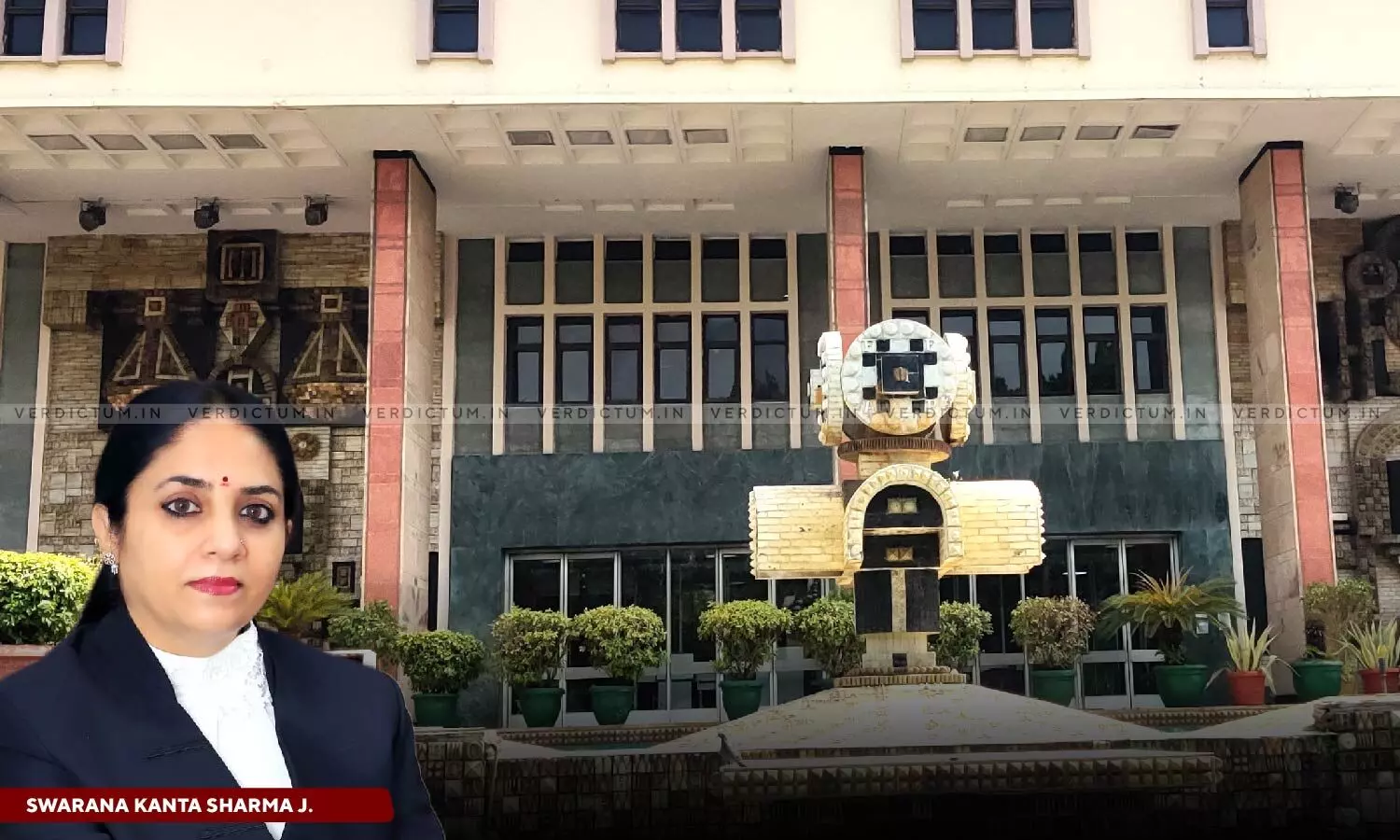
Delhi High Court Affirms POCSO Act As Gender-Neutral Law; Protects Minor Victim From Repeated Cross-Examination
 |
|The Delhi High Court recently refused to direct re-cross examination of the victim, who was seven years old at the time of the unfortunate incident, as well as her mother before the trial court, saying it was duty bound to remain sensitive to the plight of the minor victim in cases of Sexual offences.
Justice Swarana Kanta Sharma found the argument of the petitioner that the legislation of POCSO Act is a gender based legislation and therefore is being misused as inappropriate but also misleading.
“To say the least, POCSO Act is not gender based and is neutral as far as victim children are concerned. Moreover, to argue that the legislation is being misused and using the language such as “as the complainant by keeping a gun on her minor daughter’s shoulder had implicated the applicant in the present case so as to coerce him to re-pay a friendly loan that he had taken from her husband” (as mentioned in the petition) have been found to be most insensitive by this Court.”
The petitioner had filed a petition under Section 482 of the Code of Criminal Procedure, 1973 (Cr.P.C) to quash the order dated May 23, 2023 passed by the Additional Sessions Judge (FSTC), POCSO. This case arose from an FIR registered for offenses punishable under Sections 376/506 of the Indian Penal Code, 1860 (IPC), and Section 6 of the Protection of Children from Sexual Offences Act, 2012 (POCSO Act).
The petitioner filed an application under Section 311 Cr.P.C. seeking directions to re-call the prosecutrix and her mother for further examination. The petitioner claimed that the previous cross-examination lacked a discussion of the charges against the accused and was conducted merely as a formality. The Trial Court had dismissed this application.
Advocate Hitesh Thakur appeared for the Petitioner and Advocate Manoj Pant (APP) appeared for the Respondents.
The petitioner's counsel contended that the cross-examination of the prosecutrix was conducted in a routine manner, overlooking the seriousness of the allegations against the petitioner. No questions were asked about the details of the alleged incident, such as the mode and manner in which it occurred. This omission is seen as a failure to verify if the incident genuinely took place or if it was a fabricated story by the complainant/mother of the prosecutrix. It was argued that the mother of the prosecutrix needs to be re-cross-examined to understand when she became aware of her daughter's disappearance, how she searched for the prosecutrix, and other relevant details.
On the other hand, the State's counsel argued that the witnesses were extensively examined. Additionally, considering that the prosecutrix was only seven years old at the time of the incident and nine years old during her examination, subjecting her to the trauma of reliving the entire incident should be avoided.
The Court observed that specific allegations were made in the FIR, stating that the petitioner/accused sexually assaulted the minor victim on the building's roof. The petitioner previously moved an application under Section 311 Cr.P.C. in the Trial Court, seeking the recall of the prosecutrix, the prosecutrix's mother, and PW-9 (the doctor who conducted the medical examination of the victim).
The Court agreed with the trial court’s observation that the victim, being a minor, had already faced significant trauma during the initial proceedings, and it had been nearly six and a half years since the incident and five years since the initial cross-examination. The application was deemed belated and unlikely to be in the interest of the victim's well-being.
“The victim, being only of seven years of age having gone through this repeated trauma on number of occasions and period mentioned above, cannot be directed to appear once again after six years to depose about the same incident, only on the ground that the previous counsel had cross-examined the witness in a manner which the new counsel does not find sufficient or appropriate.”
The Court remarked that the relevant provision of the POCSO Act, Section 33(5), emphasizes that the Special Court should ensure that the child victim is not repeatedly called to testify.
The Court considered the arguments made by the petitioner's counsel that the bar under Section 33(5) of the POCSO Act is not absolute, but the Court has the discretion to recall witnesses in the interest of justice. However, the Court found that each case has unique circumstances, and a standard format-based order cannot be applied in all cases. The Court must balance the rights of the accused under Section 311 Cr.P.C. and the fair trial rights of the victim based on the specific case facts.
The Court further noted that the victim was a minor, and she had already faced trauma by repeatedly recounting the incident during various stages of the legal process. The delay in filing the application for recall after nearly six years since the initial testimony suggests a potential attempt to delay the trial.
The Court emphasized that the right to a fair trial is essential for the accused, but it must be balanced with the rights of the victim. The Court held that it cannot allow repeated cross-examination solely based on the convenience of a new counsel or due to dissatisfaction with the previous cross-examination.
The Court dismissed the petition as lacking merit and directed the Trial Court to ensure an expeditious and fair trial in the case, considering the well-being of the minor victim.
Cause Title: Rakesh v. State NCT of Delhi & Anr.
Click here to read/download Judgment